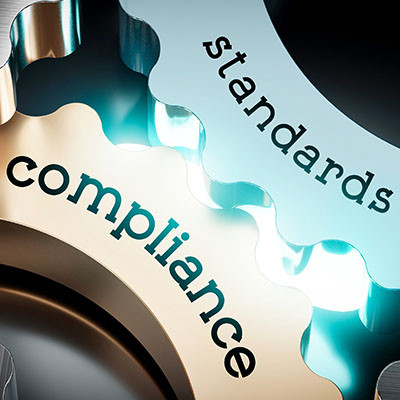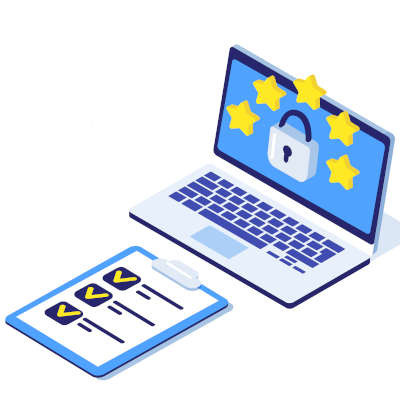It’s easy to see all the reasons why you should make data regulations and compliance a priority. After all, you want to ensure you don’t violate the trust and security of your customers, as well as the integrity of your operations. If you make even one mistake, it could spell legal trouble for your business, as well as financial losses and loss of reputation.

KB Technologies Blog
KB Technologies has been serving the Deerfield Beach area since 2002, providing IT Support such as technical helpdesk support, computer support, and consulting to small and medium-sized businesses.
0 Comments
Have you looked at the forecast lately? Not the weather forecast… the market forecast. You know, the one that shows that proposed tariffs could impact the market—including hardware costs—as early as February 2025.
You know what that means: it’s time to upgrade or purchase new hardware today before the price hikes make it impossible.
Technology is a great tool for businesses to keep up with the times, so to speak, and one way organizations have adapted to evolving needs of their clientele is through AI. Healthcare technology, in particular, can leverage AI and its benefits in unique ways. Today, we want to explore some of these benefits and how healthcare organizations can use AI to provide better quality services to their patients.
Data loss has a severely damaging impact on the businesses that suffer from it, so why not help protect your business the same way you would with other damages? Cyber insurance helps do just that, and is therefore a super helpful investment for today’s businesses to embrace.
That said, just like other forms of insurance, there are certain requirements that must be met for a business to qualify. Let’s touch on some common requirements insurance providers have.
In terms of security, you have countless solutions at your disposal, with two of the bigger and more valuable solutions being a virtual private network and the adoption of a zero trust policy. How does a VPN stack up against a zero trust policy, and how do these two types of solutions compare to the other? Let’s take a look at both.
When you think of the words “compliance” and “your business” together in the same sentence, does the idea strike fear and dread into your heart? Businesses that fail to remain compliant could suffer severe penalties. It’s not always clear-cut what compliances your organization might need to adhere to, but we can help you implement the technology to ensure you remain compliant.
Your business likely needs to meet specific criteria to remain compliant with various regulations associated with your chosen industry, but it can be overwhelming to consider everything that must be addressed to maintain compliance—particularly with data storage, privacy, and other such regulations. Let’s go over IT’s role in how your business secures and maintains compliance.
Since the global COVID pandemic forcibly introduced many, many businesses to the benefits of remote operations, there has been an increase in interest in hybrid workplace operations—a combination of the standard, in-office operations with remote work all working in tandem. However, for all its benefits, there are some threats that hybrid work brings with it that need to be acknowledged as well.
One of the most critical parts of security used to be the password, and while it has fallen out of favor in recent years due to how easily they can be cracked, a good password can still go a long way toward keeping your accounts safe. Let’s go over some of the best practices associated with passwords and how you can use them to your advantage.
Penetration testing is a term that you often hear about, but won’t really understand it unless it is completely explained to you. Well, you’re in luck because in today’s blog we will explain what penetration testing is and why it is important for data and network security and maintaining compliance with regulatory requirements that your organization operates under.
Any organization that holds medical records or other healthcare-related sensitive data needs to consider legislation and organizations that govern the privacy of those records. In this case, we are referring to HIPAA, the Health Insurance Portability and Accountability Act, and HITRUST, the Health Information Trust Alliance. These two acronyms are incredibly important for healthcare providers in the United States to understand.
Most businesses fall under some type of regulation that demands compliance. This will be especially true as data privacy concerns turn into further regulations. Most of today’s compliance standards are centered around data security, so you’d figure that if a company is compliant with the regulations their operations fall under, that would mean their business is secure. Unfortunately, the two terms aren’t always synonymous. Today, we will discuss the difference between security and compliance.
The days of the cash-only business are over. It doesn’t matter if your business is a multinational corporation or you cut grass for a living, accepting payment cards is not only convenient for your customers, most of the time it’s the most secure way to get paid. In an effort to protect the personal and financial information of consumers who have come to depend on their payment cards, the banks that back the credit card industry have developed a regulation that businesses who process cards need to adhere to. Today, we will go over this regulation and how it affects small and medium-sized businesses.
Reach Out Today!
Mobile? Grab this Article!
Tag Cloud
Business Computing
Data
Microsoft
Cloud
Malware
Best Practices
Network Security
Privacy
Security
Hardware
IT Services
Tip of the Week
Quick Tips
Google
Software
User Tips
Ransomware
Managed IT Services
Data Recovery
Disaster Recovery
IT Support
Technology
Email
Hackers
Phishing
Internet
Efficiency
Workplace Tips
Saving Money
Innovation
Productivity
Users
Cybersecurity
Current Events
Business
Workplace Strategy
Hosted Solutions
Collaboration
Mobile Device
Backup
Latest Blog
Nowadays, small and medium-sized businesses need the right technological tools to drive efficiency and growth. Software-as-a-Service has emerged as a powerful, accessible model transforming business operations. Understanding SaaS, its benefits, potential management hurdles, ...
Latest News
KB Technologies is proud to announce the launch of our new website at http://www.kb-it.com. The goal of the new website is to make it easier for our existing clients to submit and manage support requests, and provide more information about our services for ...














